Hasina falls, flees
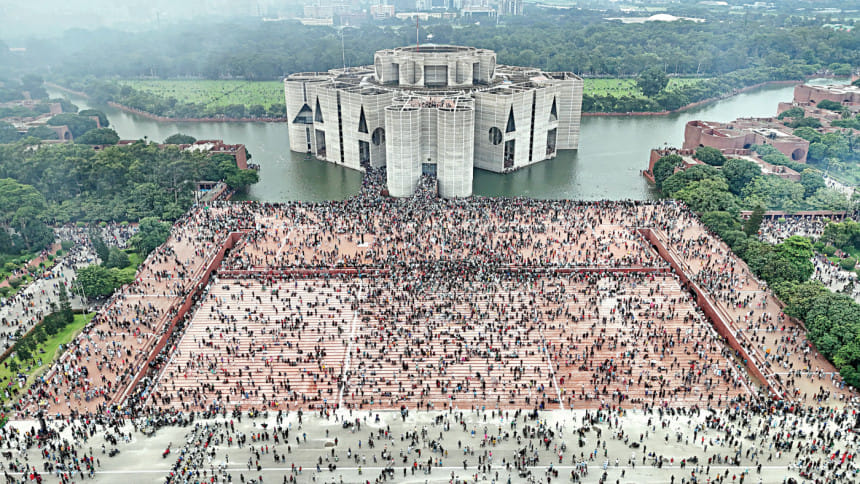
Bangladesh's iron lady of 15 years bowed out to a people's uprising yesterday. Serving as the prime minister since 2009, Sheikh Hasina was forced to resign and flee the country as hundreds of thousands marched towards Dhaka defying a curfew amid a continual morning drizzle.
The streets of the capital that had convulsed with violence and death over the last three weeks, reverberated with wild celebrations as soon as the Bangladesh army chief, General Waker-Uz-Zaman, confirmed the rumours of Hasina's resignation. He went on to say that a new interim government will be formed soon.
Millions took to the streets gridlocking the entire capital well into the evening while many found it hard to believe that Hasina's absolute hold on authority and Awami League's fabled political fortress could crumble, faced with a three-week campaign initiated by students.
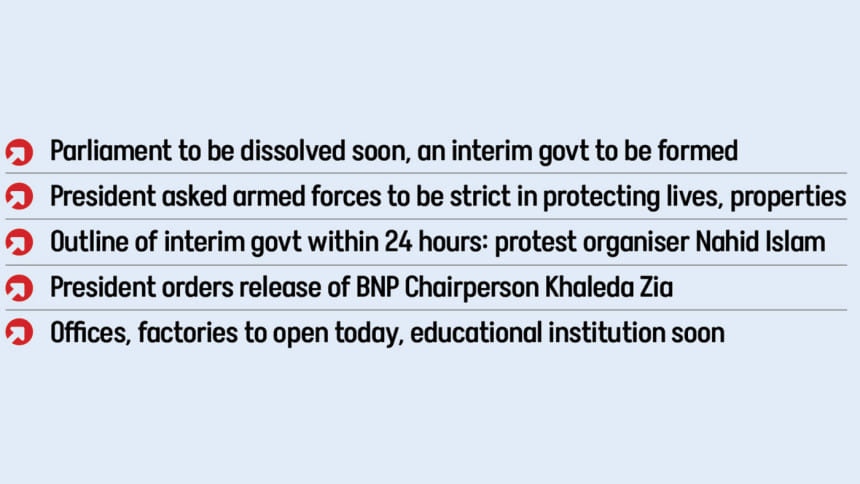
Revellers stormed the prime minister's residence, office and the parliament. They also ransacked Awami League offices and residences of high-ranking ministers across the country.
Even while thousands converged on Shahbagh from early afternoon, there were reports of violence between demonstrators and police officials on the fringes of Dhaka and from around Bangladesh amid the vacuum that was left in the wake of Hasina's hasty departure without so much as a statement or press release.
A fledgling student protest against reserved quotas for government jobs that began on July 1 started to gain momentum as the government dealt with them harshly. Despite reassurances of no harassment, the AL government employed excessive force to subdue a campaign leading to over 300 deaths. That protest transformed into a strong anti-government campaign over the last week and culminated in a people's uprising yesterday as the student campaigners called for their compatriots to "march to Dhaka". This was particularly in reply to AL's show of political force on Sunday, which left at least 93 dead in a single day's violence. Another 66 were killed yesterday in Dhaka alone.
Droves of people began gathering in neighbourhoods of Dhaka and its outskirts ready to converge in the capital's Shahbagh from early morning. There were also thousands gathering outside the capital and marching towards it, braving all obstacles. The strong tide turned on the back of university students.
About 43 years after Hasina had flown into Dhaka as the newly elected AL president for the first time, she took off on a military helicopter with her younger sister Sheikh Rehana to India.
The five-time prime minister landed in Agartala, the capital of India's northeastern state of Tripura. Thereafter, the 77-year-old premier was flown to Hindon Air Force Base in Ghaziabad, about 30km from the Indian capital of New Delhi, according to Indian news outlets India Today and NDTV.
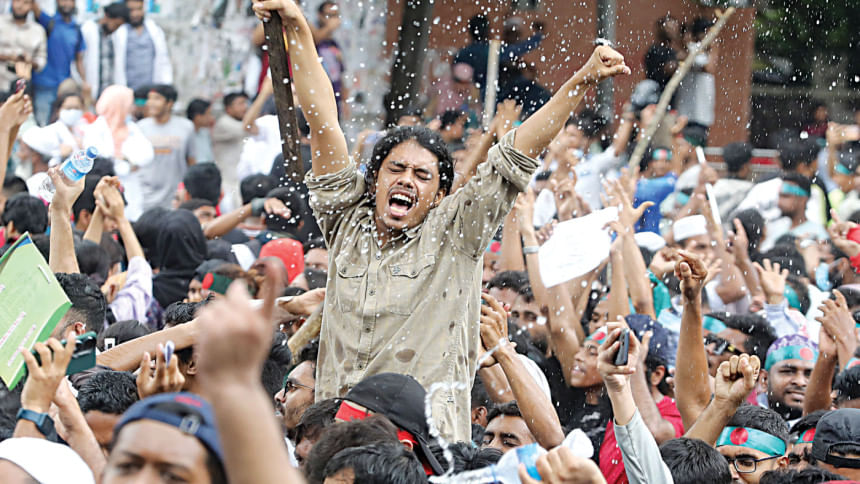
Hasina was reported to have met with the Indian national security adviser, Ajit Doval, in the evening at Hindon. It is widely reported that Hasina will seek asylum in London. Later in the evening Indian Prime Minister Narendra Modi chaired a high-level meeting with key ministers and intelligence chiefs who briefed him about the unfolding situation in Bangladesh, according to reports in Indian media.
Hasina's son Sajeeb Wazed Joy, the former PM's ICT affairs adviser, told BBC that his mother would not "come back" to politics.
Back in Dhaka, before he took the podium at the army headquarters to address the nation, flanked by the air chief and naval chief, General Waker-Uz-Zaman met with several politicians and members of the civil society including representatives of BNP, Jatiya Party, Jamaat-e-Islami, other politicians and teachers. The AL was not represented. The student campaigners were not present there either. Leaders of the student protest campaign have announced that they will present an outline for the interim government soon.
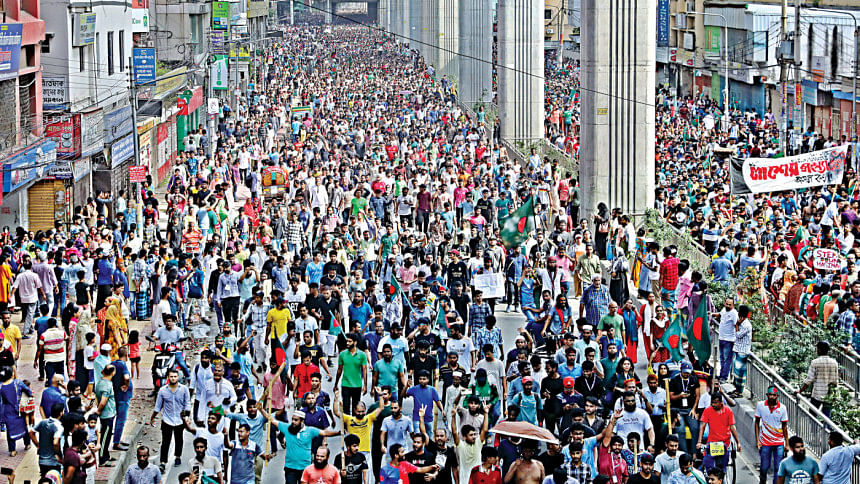
In the context of hundreds of violent deaths, the army chief reassured everyone that justice would be ensured for each. He said it was now everyone's responsibility to remain calm.
"Together, we hope to go towards a better situation," he said addressing the media. "I am taking full responsibility."
"The country has suffered a lot, the economy has been hit, many people have been killed. It is time to stop the violence."
On his way to the presidential palace, Bangabhaban, the army chief was greeted by jubilant crowd. Hundreds thronged around the general's convoy and some even rode on his car as the convoy slowly glided through the teeming millions who hailed the army chief like a triumphant hero.
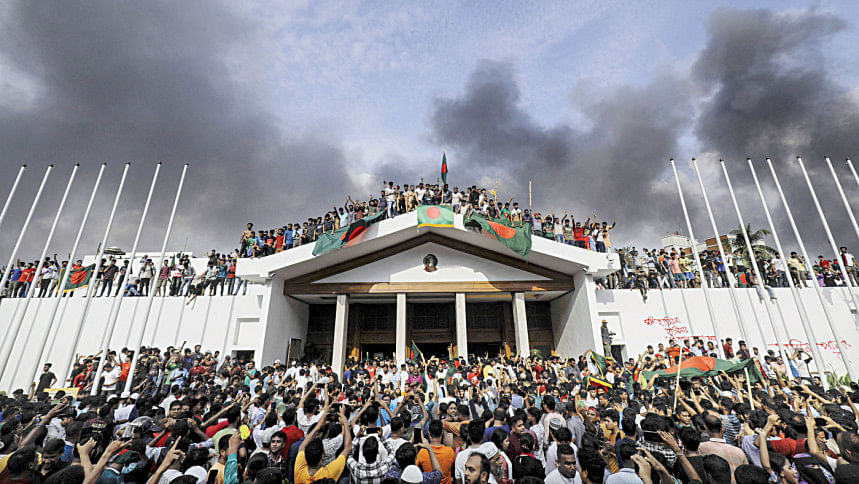
Aside from his announcement of an interim government, there were no statements about the nature of the government or the transition process till later in the evening when the president met with the military chiefs, political parties and civil society representatives.
A Bangabhaban press release said that the meeting had unanimously decided to immediately free BNP chief and former prime minister Khaleda Zia.
The meeting also decided to form an interim government immediately and urged everyone to show patience and tolerance. The military will strictly maintain law and order and prevent lawlessness. Parliament will be dissolved and all those arrested during the anti-quota protests will be released.
The delegation included BNP Secretary General Mirza Fakhrul Islam Alamgir; BNP leaders Mirza Abbas and Major General (Retired) Fazle Elahi Akbar; Jatiya Party (JP) chairman GM Quader; JP Secretary General Mujibul Haque Chunnu; JP Senior Co-chairman Anisul Islam Mahmud; Nagorik Oikkya Convener Mahmudur Rahman Manna; Hefajat-e Islam leaders Mamunul Haque, Monir Kasemi and Mahabubur Rahman; Jamaat chief Shafiqur Rahman; Jamaat leader Sheikh Md Masood; Jaker Party Secretary General Shamim Haider; Bangladesh Khilafat Majlis leader Maulana Jalal Uddin Ahmad; Zonayed Saki of Gonosonghoti Andolon; Gono Odhikar Parishad leader Golam Sarwar Jewel; Dhaka University teacher Asif Nazrul and Firoz Ahmad; and student protest leaders Abdullah Al Hossain, Arif Talukder, Omar Faruq and Mobashwera Karim Mimi and Engineer Md Anisur Rahman.
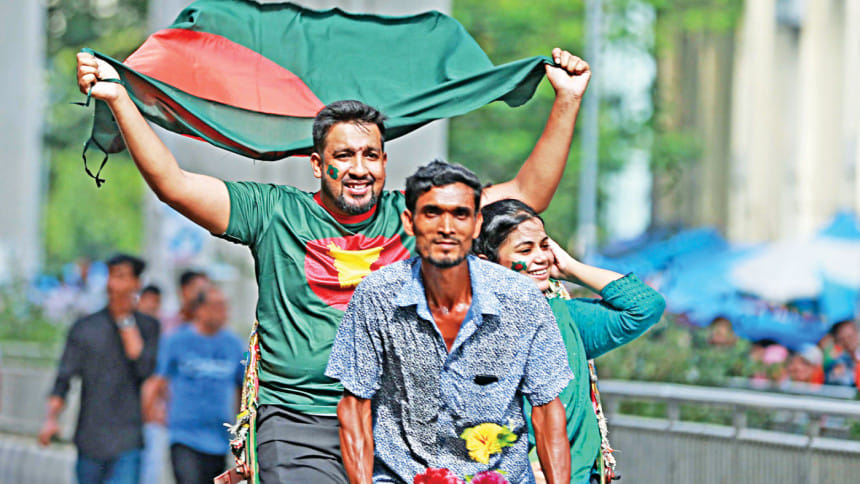


 For all latest news, follow The Daily Star's Google News channel.
For all latest news, follow The Daily Star's Google News channel. 






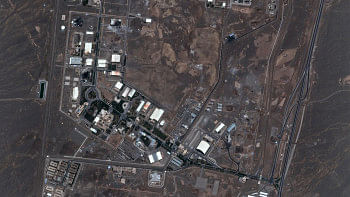
Comments